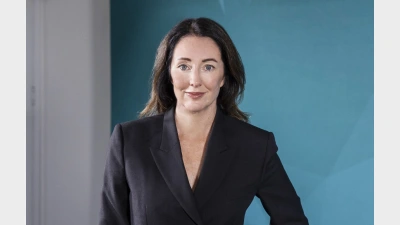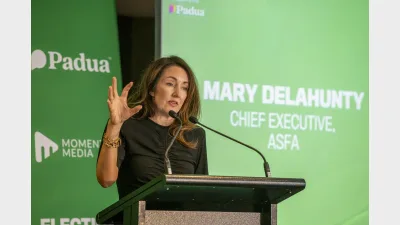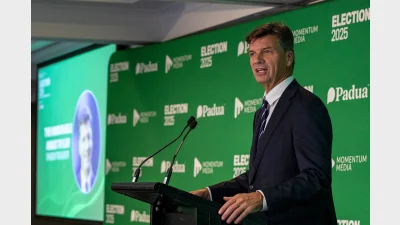Funds capitalise on volatility, tactically position for market weakness



Rather than retreating in the face of rising volatility and geopolitical uncertainty, superannuation funds are tactically positioning themselves to capitalise on equity market weakness, prioritising liquidity and flexibility to make strategic buys.
Industry leaders said the recent market downturn, driven by geopolitical tensions, divergent US trade policies, and changing interest rate paths, has underscored the importance of remaining nimble and ready to act on mispriced opportunities.
“In times of market volatility, liquidity is a key focus for us,” Amber Rabinov, head of thematic research at AustralianSuper told Super Review. “It ensures that we can take advantage of good investment opportunities and buy assets that are attractively priced.”
Her comments highlight a broader shift in institutional investor strategy, with funds repositioning to capitalise on market dislocations, viewing the recent equity market downturn as an opportunity to buy at better value.
Rabinov said AustralianSuper is actively managing its portfolios in response to a rapidly evolving global economic outlook both globally and in the geographies it invests in.
“Periods like this can often present compelling buying opportunities for the long-term investor,” she said.
At AMP, that philosophy has already been put into action.
Stuart Eliot, head of portfolio management, said AMP Super closed its overweight exposure to US equities as far back as February, well before the most recent escalation in trade tensions – a move designed to avoid the risks of a sell-off while positioning the fund to act as new opportunities emerge.
“We do not have the same qualitative overweight exposure to US shares,” Eliot told Super Review. “This was done in anticipation of expected volatility in markets and Trump’s policy directives to introduce tariffs, with the risk of a sell-off having meaningfully increased.”
By derisking early, AMP now finds itself in a strong position to respond as new opportunities emerge.
“This week’s tariff impositions together with Japan’s gradual increase of its official interest rates compared with the rest of the world are both external shocks that could potentially create the opportunity to buy into equity market weakness, which we could not do if we had already been overweight,” he said.
“Instead, we’ve crystallised our profits and are continuing to watch this closely, having made sure the portfolios are ready to capitalise on any opportunities as they arise.”
The focus now, he said, is not so much on US markets but rather on pockets of value emerging across Europe and other global exposures that offer more compelling risk-adjusted returns.
“We are on the lookout for attractive buying opportunities once the dust settles, but this is more likely to be expressed via Europe and/or a broad global exposure rather than US equities,” he said.
Similarly, on a podcast last week, Australian Retirement Trust (ART) chief economist Brian Parker said volatility is “part and parcel of any investment journey” and should also be viewed as a source of opportunity.
“We don’t know when markets will recover. We don’t know when things will settle down,” Parker said. “But at some point, the economy, business and markets adjust to a new reality and move on, and we need to be prepared for that.”
Rather than retreating from risk assets, Parker said ART has been actively looking for opportunities to invest.
“Often when we see periods like this where sharemarkets are down, our first thought is, ‘Where’s the opportunity and where can we put money to work?’” he said. “We’ve not been selling equities into this. If anything, we’ve been looking for opportunities to buy.”
Referencing a phrase used by ART’s head of advice Anne Fuchs, Parker likened the current environment to a sale: “If shares are on sale, it’s our job to look for those sorts of bargains, and that’s what we do.
“That’s what we get paid to do, to take advantage of this kind of volatility.”
Speaking at Momentum Media’s Election 2025 event last week, AMP’s chief economist Shane Oliver said that market fluctuations are a natural part of economic cycles, noting “history doesn’t repeat, but it rhymes”.
“The key is to focus on the longer term,” he said.
Recommended for you
The CEO of superannuation advocacy body ASFA has laid out the sector’s expectations for Australia’s next government, underscoring the need for policy stability to safeguard members’ retirement savings.
Aware Super has made a $1.6 billion investment in a 99-hectare industrial precinct in Melbourne’s North which, the fund clarified, also houses the nation’s first privately funded open-access intermodal freight terminal.
ASFA has affirmed its commitment to safeguarding Australia’s retirement savings as cyber activity becomes an increasing challenge for the financial services sector.
The shadow treasurer is not happy with the performance of some within the super sector, telling an event in Sydney on Thursday that some funds are obsessed with funds under management, above all else.












